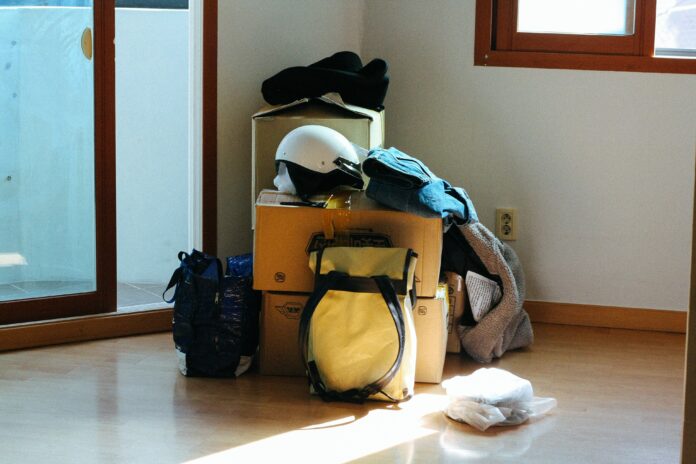The need to break a lease could arise for many different reasons. Life never fails to take us by surprise, presenting us with new twists and turns at any given moment. Sometimes a new career opportunity will pop up on the opposite side of the country, or you could lose your job and not be able to afford the apartment you live in now. Whatever the case may be, this tricky predicament can cause intense feelings of stress and worry about the repercussions that could strike. There are ways around this, but you have to be certain that you are proceeding with all your ducks in a row. Paying high fees won’t be ideal and you definitely don’t want your landlord taking you to court.
In an attempt to set you up for success, we are here to help by gathering the proper research in order to guide you through your process. There are only a few legally acceptable reasons to break a lease without a penalty against you. So, if the reasoning for wanting to break the lease falls under any of these categories you should not have a problem.
First, there is the early termination clause that a lot of modern-day leases have. If you were to take this route, you would still have to pay a penalty fee within the details stated in your lease. However, this is an official way to go about it that avoids any sort of other exuberant fees. Make sure you are aware of the fee prior and how many days’ notice you need to give before you go about breaking the lease this way.
Another legally acceptable reason would be if you take part in active military duty and must relocate. The act that protects is called the Servicesmembers Civil Relief Act in which you must show proof that you signed the lease before entering active duty, show proof that you will be active for the next 90 days, and give a written letter to your landlord with your orders that state you will be deploying. You must be aware that if and when all this is completed, the lease is still intact and you cannot officially terminate it until 30 days after the beginning of the next rent period.
Perhaps the unit you are living in is uninhabitable under the safety codes enacted by New York. If your landlord does not comply with your requests to fix unlivable conditions, you would be considered “constructively evicted”. But what justifies an apartment as uninhabitable? Well, there is to be no vermin, garbage, or other offensive material that would make the apartment dirty or unkept. A landlord is also responsible for all electrical, plumbing, sanitary, heating and ventilation systems to be maintained so they work all year around. Let’s say your fridge breaks and your landlord has gone multiple weeks without fixing it, this would constitute your space as uninhabitable.
Bad landlord scenarios happen a lot more than you think. It’s possible that your landlord can go about any sort of harassment toward you and other co-tenants which would be terms to break your lease. If your landlord is invading your privacy by entering without 24 hours’ notice or changing the locks without your knowledge, this would also be a way to be “constructively evicted”. In New York State it is illegal for landlords to lockout active tenants.
According to New York law if a tenant is a victim to domestic violence, they would receive a special rental provision to remove them from the situation. This is for their safety and wellbeing above anything else. The rental provision also includes victims of stalking that want to remove themselves from their place of habitat. If you find yourself in this predicament, it is best to consult law enforcement so they can assist you in moving forward with terminating your lease. You will have to receive approval from the court, but it is a possibility if it needs to be done.
The last legally official reason for terminating a lease early would be if your roommate is experiencing serious physical or mental health complications at an older age. This is also in accordance with New York law and this states that tenants or the spouse of the tenant living with them that is aged 62 years or older, or who will be 62 during the lease can terminate the lease early. This must be done under the supervision and certification of a physician stating that the party is unable to live independently and must live under care of someone else.
If you are to terminate your lease for any other reason (i.e. you want to move elsewhere, you are relocating for work/school, you want different roommates, you are moving in with a partner, you don’t like the neighborhood…) it would not be sufficient justification in the court of law. There is nothing that protects you from moving for these reasons and you may find yourself in a sticky situation. But it is what it is, and you still might need to prepare to fight a hard battle.
There are a few steps you can take if you plan to terminate your lease under insufficient justifications. Writers at BrickUnderground compiled a list of seven was to break a lease. To sum up their points: consider writing to your landlord and explain your situation because some will be more lenient than others, find another tenant to replace you in accordance with the lease, try not to break the lease during quiet months like winter, learn and know all your rights especially when it comes to a security deposit, be prepared to pay a fee, don’t be scared of your landlord if they use terms like “tenant blacklist” because those things don’t really exist, and find loopholes to make claims against your landlord to assure a stronger case.
Breaking a lease is more common than you think. Landlords for the most part won’t give you a hard time because this is nothing they haven’t seen before. If your situation is dangerous or dire, there are laws to protect you. For whatever reason you may need to vacate your home, the chances of you being able to go through with it with ease are high. As long as you keep up-to-date with your information, you should be fine! Don’t worry too much.
Carly is a freelance writer with interest in topics pertaining to lifestyle blogging, social justice, and anything to do with film/media. She graduated from the University of Wisconsin - Madison with a degree in English & Literary studies in hopes to write for a large music publication. When she is not writing, you can find her watching movies, cooking her famous Carbonara, and enjoying time outdoors.



